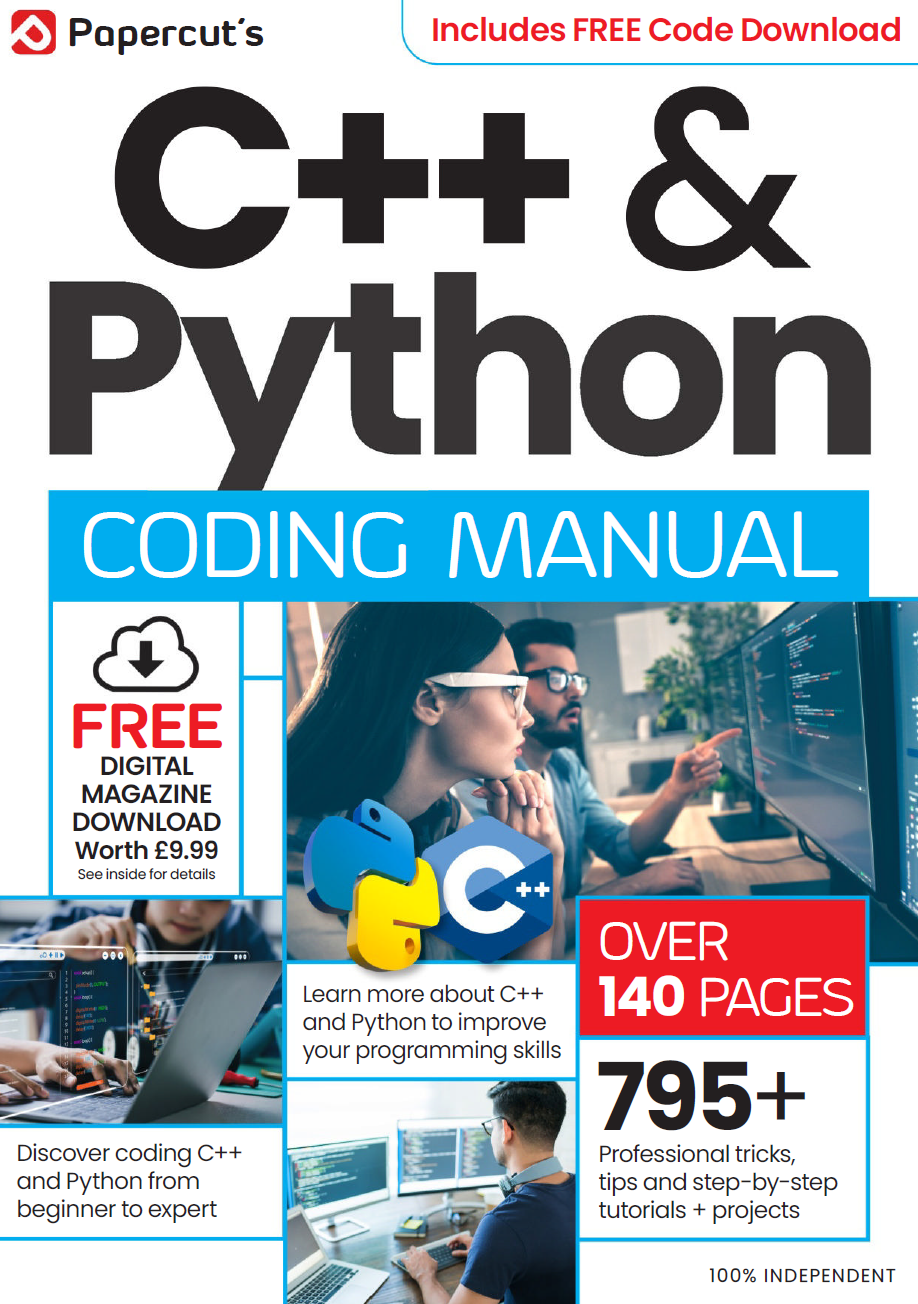
C++ & Python Coding Manual – 2024
Free
The C++ & Python Coding Manual Magazine is a leading resource for developers and programming enthusiasts who aim to master both C++ and Python. This magazine provides a rich blend of tutorials, project ideas, and expert insights, highlighting the strengths of each language and how they can complement one another. Whether you’re a beginner, a seasoned developer, or a student, the magazine offers valuable content tailored to enhance your programming expertise.
Key Features
1. Tutorials for All Levels
Beginner-Friendly: Step-by-step guides for setting up environments, writing your first programs, and understanding syntax.
Intermediate Topics: Diving deeper into language-specific features like pointers in C++ or decorators in Python.
Advanced Challenges: High-performance computing in C++ and asynchronous programming in Python.
2. Comparative Programming
Side-by-Side Syntax: Direct comparisons of common programming tasks (e.g., loops, file handling, and error management) in both C++ and Python.
Performance Analysis: Benchmarks and explanations of when to use each language.
Integration Tips: Tutorials on combining C++ and Python using tools like
Boost.Python,SWIG, andpybind11.
3. Focus on Practical Projects
C++ Projects: Develop a game engine, create robust system-level applications, or implement real-time rendering techniques.
Python Projects: Build web applications, automate tasks, or explore machine learning with TensorFlow and Scikit-learn.
Hybrid Projects: Prototyping with Python and optimizing with C++ for a seamless workflow.
4. Data Structures and Algorithms
Hands-On Coding: Implementation of algorithms like sorting, searching, and graph traversal in both languages.
Performance Comparison: Understanding how data structures like arrays, trees, and hash maps perform differently in C++ and Python.
5. Tools & Libraries
C++: Insights into the Standard Template Library (STL), Boost Libraries, and modern C++ features like smart pointers and concurrency.
Python: Mastery of popular libraries like NumPy, Flask, Django, and Matplotlib.
Cross-Platform Tools: Explore IDEs and tools like Visual Studio Code, JetBrains CLion, and PyCharm.
6. Expert Columns
Interviews: Thought leaders and experienced developers share tips, tricks, and advice.
Best Practices: Writing efficient, readable, and maintainable code in both languages.
Problem-Solving: Real-world coding challenges and solutions explained in depth.
7. Debugging & Optimization
Debugging Techniques: Tools like GDB for C++ and Python’s built-in debugger (
pdb).Code Optimization: Best practices for writing fast, efficient, and scalable programs.
Memory Management: Tips for managing resources effectively, especially in C++.
